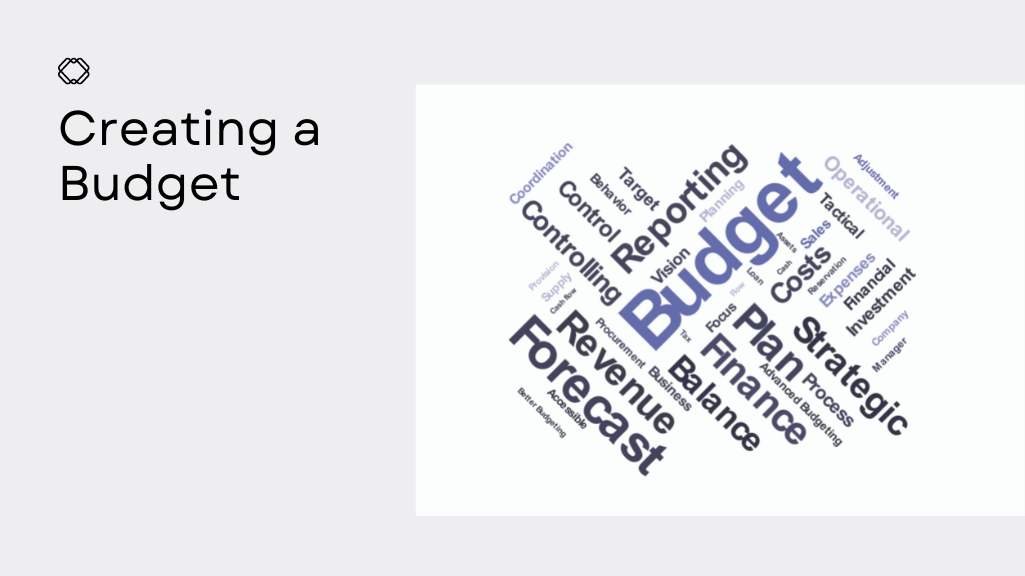Creating a Budget: Steps and Strategies for Managing Your Finances
Alvish Asher
. 2 min read
One of the best ways to understand where your money goes each month and what changes you could make to help you reach your financial goals is to create a budget and then stick to it. When creating a budget, the ultimate objective is to find a way to prevent spending more money than one brings in each month. Additionally, leveraging modern technology can further assist in budgeting endeavors. For instance, utilizing platforms like omegle chat can provide opportunities to connect with financial experts or fellow budgeters who can offer valuable insights and tips.

The following are some steps you can take when creating a budget
Total the Monthly Wages and Salaries
Think about all of the different ways you could make money, such as the salary you receive from your job, the payments you receive from clients if you are a freelancer or gig worker, or the sales you've made if you run your own company.
Determine the things that are most important to you in terms of your finances
If there is a pricey item that you are putting money aside for, or if you need to start saving more for retirement, keep this goal in mind while you are developing your spending plan. Depending on your goals, you will either need to spend more money or you will be able to spend less money in certain areas.
Look for opportunities for savings
If you take a close look at your finances, you might discover that you are spending unnecessary money on streaming services that you don't use, for instance, when you could be paying more toward the principal on your mortgage each month. This can be discovered by taking a close look at your finances.
Anti-Budget
In spite of what the name might lead one to believe, this is still a spending plan of some kind. You do not have to worry about particular categories when you use the "anti-budget." You simply pay as you go. There are only two conditions: first, you must ensure that your priorities are met, and second, you must place yourself at the top of your list of priorities.
Maintain an accurate record of your spending
If you don't make an effort to stick to the budget you create, it won't be of much use to you. Take the time, at the very least once a week, to make sure that you are sticking to your monthly spending plan by adding up all of your expenses as the month progresses.
Identify the costs that are subject to your discretion
It's not all about keeping up with the bills and putting money away. So, take into account your discretionary expenses the things you spend money on that you don’t absolutely need. Examples of this kind of spending include going out to eat, shopping for presents, going on vacation, buying new clothes, and going to the movies or shows.
Determine the costs that are fixed
Once you have a firm grasp on your income, the next step is to get a handle on your expenses, beginning with those that are set in stone. Your fixed costs include all of the expenses that continue to be paid at the same rate month after month. Expenses like rent, certain utility bills (like internet or phone plans), website hosting fees, and payroll costs are examples of what this category can include.
More Stories from
A Glance into the Rich Tapestry of Indian History
This article provides a captivating overview of Indian history, spanning from the ancient Indus Valley Civilization to modern times.
The Indian Army: A Resilient Force Safeguarding the Nation
The Army remains steadfast in its commitment to safeguarding the nation's security and responding to diverse challenges.
The Enchanting Rhododendron: Himachal Pradesh's State Flower
Discover the captivating Rhododendron, the state flower of Himachal Pradesh, India. This vibrant evergreen shrub, native to the Himalayas, paints the landscape with breathtaking colors each spring.
Exploring the Uncharted: Speculative Insights into the World Beyond 2021
This article provides a brief overview of potential geopolitical shifts, technological advancements, environmental concerns, health challenges, economic developments.
Racial Justice and Inclusivity: Promoting Equality in Society
Explore the vital journey towards racial justice and inclusivity as we uncover the challenges faced by marginalized communities and the transformative power of inclusivity.











.png?width=40&aspect_ratio=1:1)

.png?width=40&aspect_ratio=1:1)